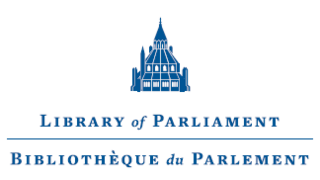 W
WThe Library of Parliament is the main information repository and research resource for the Parliament of Canada. The main branch of the library sits at the rear of the Centre Block on Parliament Hill in Ottawa, Ontario, and is the last untouched part of that larger building's original incarnation after it burned down in 1916. The library has been augmented and renovated a number of times since its construction in 1876, the last between 2002 and 2006, though the form and decor remain essentially authentic. The building today serves as a Canadian icon, and appears on the obverse of the Canadian ten-dollar bill.
 W
WThe Library of Congress of Chile is a library in Santiago, Chile.
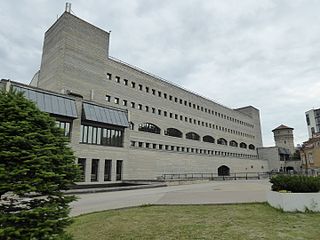 W
WThe National Library of Estonia is a national public institution in Estonia, which operates pursuant to the National Library of Estonia Act. It was established as the parliamentary library of Estonia on December 21, 1918.
 W
WThe National Parliamentary Library of Georgia is a governmental organization under the Parliament of Georgia. It is the main book depository of Georgia, as well as the most important cultural, educational, scientific, informational and methodological centre.
 W
WThe House of Commons Library is the library and information resource of the lower house of the British Parliament. It was established in 1818, although its original 1828 construction was destroyed during the burning of Parliament in 1834.
 W
WThe House of Lords Library is the library and information resource of the House of Lords, the upper house of the Parliament of the United Kingdom. It provides Members of the House and their staff with books, Parliamentary material and reference and research services.
 W
WThe National Diet Library (NDL) is the national library of Japan and among the largest libraries in the world. It was established in 1948 for the purpose of assisting members of the National Diet of Japan in researching matters of public policy. The library is similar in purpose and scope to the United States Library of Congress.
 W
WThe Niyamasabha Mandiram, located in Palayam, Thiruvananthapuram, is the seat of the Kerala State Legislative Assembly or the Niyamasabha. Built primarily in the classical style of Architecture of Kerala, with strong influences of many contemporary styles, it is a structure with grand staircase, gardens, water bodies and a large Central Assembly Hall. Located in a high security zone, the complex accommodates the residence of the Speaker of the Niyamasabha, legislature offices of all MLAs and offices of independent commissions and bodies. The assembly was opened on 22 May 1998, by the President of India, K. R. Narayanan.
 W
WThe Legislative Library of Uruguay was established in 1929 after the fusion of the libraries of the Senate and that of the House of Representatives.
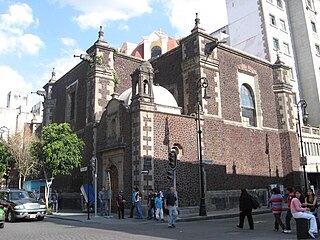 W
WThe Library of the Congress of Mexico mostly contains the records of the country's legislative sessions since its Independence. It is located at 29 Tacuba Street, near the corner with Bolivar in the historic center of Mexico City. This structure was originally part of a Poor Clares convent founded in the 16th century, but was confiscated by the Reform Laws of the 19th century. Since then, this building has been used as government offices, barracks and even a canteen. It current use was established in 1962, when the Library of Congress was founded by the Mexican government. Since then, the archives it houses have outgrown the building and a number are housed at the Palacio Legislativo de San Lázaro as well.
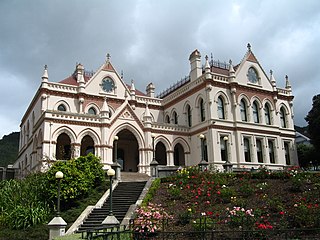 W
WThe New Zealand Parliamentary Library, known until 1985 as the General Assembly Library, is the library and information resource of the New Zealand Parliament.
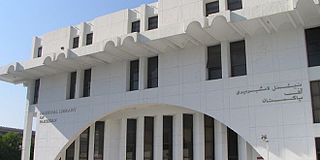 W
WThe National Library of Pakistan, is the national and the research library located in the vicinity of the Red Zone, Islamabad, Pakistan. American author, Stuart Murray, argues that it is the oldest cultural institutional that plays a leading role in providing the resource for information— ancient and new. The National Library receives about 66 percent of serial publications and 50—55 percent of books published in the country.
 W
WThe Passos Manuel Library is the library of the Assembly of the Republic, the Portuguese national legislature. It houses a specialised collection of over 180 thousand volumes, mostly about parliamentary matters, Law, Political Science, History, Economics, and Statistics.
 W
WNational Assembly Library of Korea ( Hangul:국회도서관) is a library in Seoul, South Korea. It is located in Yeouido-dong, Yeoungdeungpo-gu. It is the largest Humanities and Social Sciences Library in Korea functioning as both parliamentary and public libraries. The Library manages and preserves the National Assembly records. The Chief Librarian is a public official in political service under the Speaker of the National Assembly.
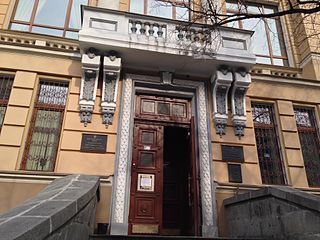 W
WThe National Parliamentary Library of Ukraine is one of the national libraries of Ukraine, one of the largest libraries of the country. It was opened in 1866 as the city's public library. The main building of the library is located on 1, Mykhaila Hrushevskoho Street on the European Square in the center of Kyiv.
 W
WThe Library of Congress (LC) is the research library that officially serves the United States Congress and is the de facto national library of the United States. It is the oldest federal cultural institution in the United States. The library is housed in three buildings on Capitol Hill in Washington, D.C.; it also maintains a conservation center in Culpeper, Virginia. The library's functions are overseen by the Librarian of Congress, and its buildings are maintained by the Architect of the Capitol. The Library of Congress is one of the largest libraries in the world. Its "collections are universal, not limited by subject, format, or national boundary, and include research materials from all parts of the world and in more than 450 languages."